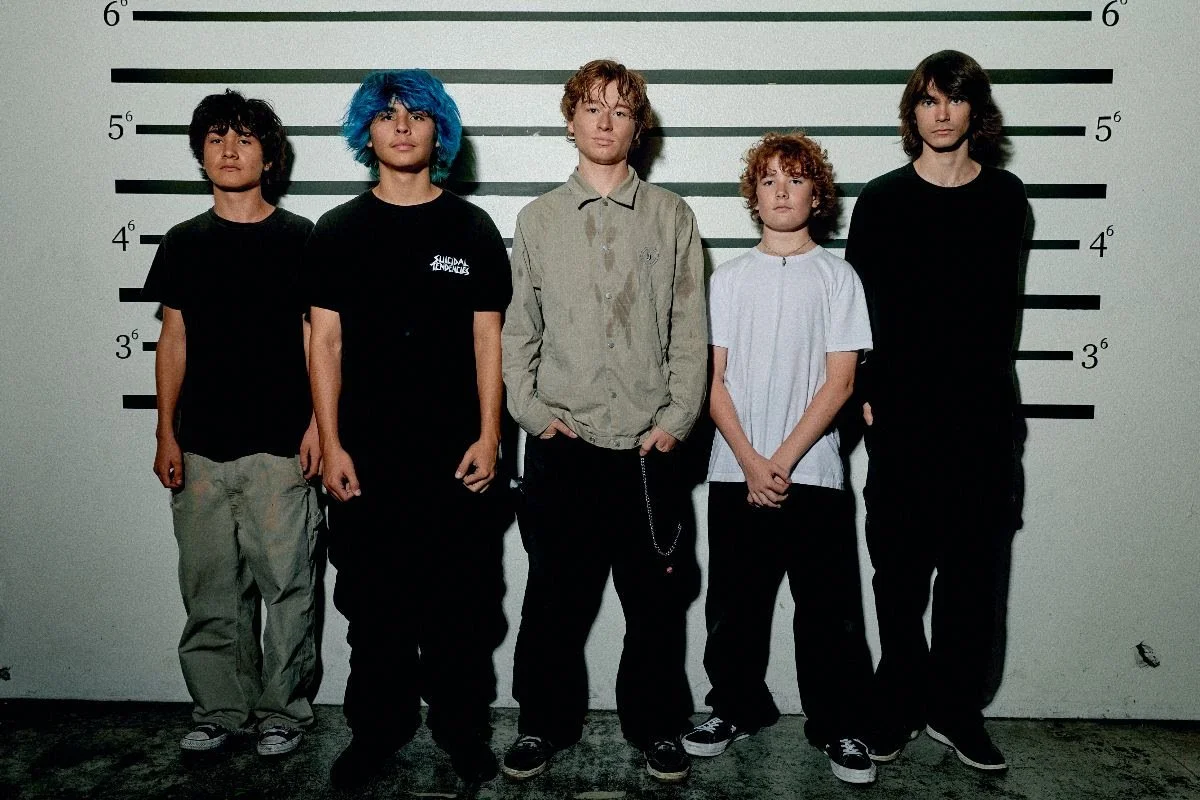Album Review: The Linda Lindas - 'Growing Up'
The Linda Lindas is the band you’ve always wanted to be in. They’re a riot grrrl inspired, punk rock four-piece based in LA who just released their first album – does it get any cooler? Growing Up is a distortion-fuelled event, securing the band’s place among the legends they emulate.
One of the truly remarkable things about The Linda Lindas is their age. The four members (Mila de la Garza, Lucia de la Garza, Eloise Wong, and Bela Salazar) range from 11 to 17 years old, and already they’ve managed to produce a remarkable (there’s that word again) record. Although there is a marked difference between being 11 and being 17, the band managed to produce a record that feels coherent, sitting comfortably in an adolescent universality
“Oh!” kicks the album off with a bang. Interestingly, it’s the only song on the record that was written collaboratively between the band members, and perhaps as a result, it’s the most intricately put together. Power chords create the song’s foundation; smooth, flowing riffs effortlessly bridge sections together, and urgent drums propel the infectious melody forward while a bassline gives a solid foundation. It feels like a song The Runaways would have stood proudly over in the 70s.
Lucia de la Garza, the 14-year-old guitarist wrote ‘Growing Up,’ the optimistic title track that finds solace in friendship and family as ‘growing up’ looms unpleasantly. ‘Fine’ (written by Eloise Wong) is explosive. Her vocals soar on top of gritty power chords, thundering drums and a tightly wound guitar melody give the impression of a song teetering on the edge of combustion. Good ole fashioned rage and frustration permeate every moment as Wong sings ‘you know we’re dying but you say that we’re cured.’
The thematic range on this album is impressive. ‘Nino’ is a charming song about Bela Salazar’s cat, ‘killer of mice and rats.’ Immediately afterwards we’re hit with ‘Why’, in which Wong traces the despair of isolation during the pandemic. Wong’s straightforward emotional honesty is welcome and makes for a compelling listen.
‘Cuántas Veces’ is a particularly notably moment on the record. Billed as Salazar’s most personal song yet, it’s sung entirely in Spanish and is completely un-punk. Salazar (in what is arguably a very punk move nonetheless) sings a message of defiance and self-love for anyone who has ever felt like a weirdo. The melody is deceptively upbeat underneath lyrics that explore insecurity. Swirling guitar chords are enveloping, welcoming you into Salazar’s innermost thoughts.
‘Racist, Sexist Boy’ is a fantastic finale. A quintessential riot grrrl racket – sludgy, grungy, power chords slide up the neck of the guitar and loop downwards, while earth shaking bass solidifies the song’s concrete foundation. Wong nails the delivery of what has to be one of the greatest lyrics of all time: ‘you are a racist, sexist boy and you have racist, sexist joys.’
The song is largely responsible for introducing The Linda Lindas to the wider world after a performance of it at the Los Angeles Public Library went viral. Before the band performs the song, Mila de la Garza explains that she wrote it with Wong after a boy in her class came up to her and told her that his dad ‘told him to stay away from Chinese people.’ She explained to the boy that she was Chinese and then he backed away from her. This song is their response to that. It’s a perfect catharsis to end on. A righteous anger rightfully expressed.
The Linda Lindas are formidable, and Growing Up proves it. If they are the new guard of rock, then it’s in safe hands.
Words by Izzy Rowley












